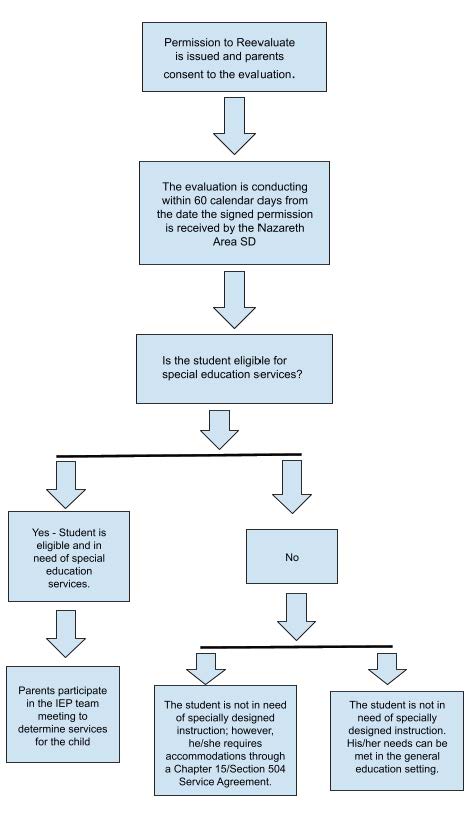- Nazareth Area School District
- Early Intervention
Special & Alternative Education
Page Navigation
- Overview
- Record Request
- Family Engagement Series
- Upcoming Events
- Referral and Evaluation for Special Education
- Special Education
- Early Intervention
- Parent/Family Resources
- Acronyms
- Annual Child Find Notice
- Procedural Safeguards
- Transition
- Extended School Year
- School Based Access Program (SBAC)
- Special Olympics
- Questions/Concerns
- Special Education Plan
- Annual Public Notice of Special Education
- Right to Education Local Task Force 20
-
Early Intervention
Early Intervention is a series of supports provided under the federal law called Individuals with Disabilities Education Act (IDEA). All children have a right to Early Intervention Services when they are needed. Any family can use these services regardless of income status or health care benefits. Early Intervention services provide services to the child and the family in a variety of settings with a focus on the use of natural settings. Early intervention services are family centered - meaning that the support and services provided to the child and the families are based on the strengths and needs identified by the family. It is important to intervene as early as possible to maximize the child’s development and to provide support to the family
Early Intervention is provided in Pennsylvania under the Office of Child Development and Early Learning and the Department of Public Education. The Office of Child Development and Early Learning funds Early Intervention from Birth to three years of age. The Department of Public Education funds Early Intervention services from 3 years to the age of beginners.
Accessing Early Intervention Services
Parents or legal guardians concerned about their preschool aged child’s educational development should contact the Colonial Intermediate Unit 20 to request a referral packet or by calling 610-252-5550 and providing the following details about your child:
- Your first and last name
- Mailing Address
- Home, work and cell phone numbers
- Child’s name
- Child’s date of birth
- Child’s school district of residence (Nazareth Area School District)
Transitioning from Early Intervention Services to Kindergarten
Step 1: The Transition Meeting
What to Bring to the Transition Meeting:
- Your Child
- A copy of your child’s current records from CIU20, if a release has not been signed
- Any outside psychological or medical evaluations
- Early Intervention Forms
- Student Information Form
- Parent Information Form
- Consent for Electronic Transmission of Documents
- Completed Kindergarten Registration Forms
- Registration Packet
- Medical Examination Form
- Dental Examination Form
Note: Your registration appointment will automatically be scheduled
in conjunction with your transition meeting.
WHO will be in attendance?
- Case Manager from CIU 20
- Special Education Supervisor
- Speech & Language Therapist (If appropriate)
WHAT will we discuss?
- Your child’s strengths as well as potential areas of needs.
- Current programming through CIU 20
- The evaluation process and what to expect moving forward.
- A permission to evaluate/prior written notice will be issued at that time.
WHERE will the meetings be held?
- The location of the transition meetings will be determined by the Multidisciplinary Team and shared with families prior to the meeting.
WHEN are the meetings held?
- Your case manager from CIU 20 will contact to schedule the meeting
- Meetings are typically held starting in December through February.
WHY is this important to me?
- Our goal is to use this meeting to build a collaborative and trusting relationship with families. We are committed to supporting families through the entire transition process beginning to end.
Step 2: The Evaluation Process

